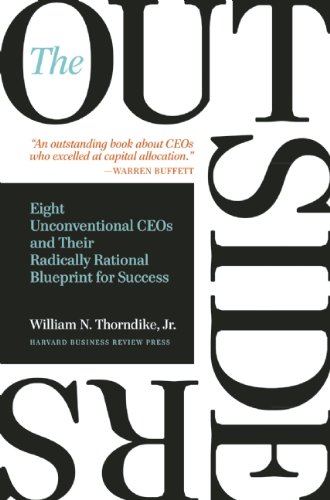

This article is an excerpt from the Shortform summary of "The Outsiders" by William N. Thorndike, Jr. Shortform has the world's best summaries of books you should be reading.
Like this article? Sign up for a free trial here .
What is EBITDA, and what does it stand for? What’s the importance of EBITDA in business management?
For many top CEOs, EBITDA is one of the most vital metrics in business. EBITDA’s meaning in finance is earnings before interest, taxes, depreciation, and amortization, can affect operations and spending power. Keep reading to find out the importance of EBITDA, and one huge EBITDA example.
EBITDA Explained: Why Do CEOs Use It?
Outsider CEOs resisted focusing on reported earnings, which present a muddled reflection of company performance because of capital expenditures, acquisitions, and other accounting artifacts. Instead, they focused on cash flow and then-innovative metrics like EBITDA (earnings before interest, taxes, depreciation, and amortization). This affected their operations deeply, from how they financed acquisitions to their compensation schemes for employees. EBITDA explained the company’s value and available cash flow in a more meaningful way, helped solidify the importance of EBITDA in the business world, and defined EBITDA’S meaning in finance.
This relentless focus on cash flow also allowed them to avoid counterproductive distractions, such as costly acquisitions for the sake of growth that would later prove unprofitable.
EBITDA Example: John Malone at TCI
John Malone provides a great EBITDA example. Malone believed that the conventional measure of company performance, earnings per share, was a foolish yardstick for the growing cable industry. He saw that higher earnings meant paying more taxes, which would bleed money that could be used to scale a cable company.
Therefore, he ignored EPS, instead focusing on cash flow. In fact, Malone pioneered the use and importance of EBITDA. At the time, EBITDA was a radically new reflection of a company’s cash flow; today, it’s universal in financial analysis, and most business leaders believe in the importance of EBITDA.
Like many acquisitive outsider CEOs, Malone also used debt to finance acquisitions. As described earlier, he saw that growth for cable companies could come more cheaply than expected—depreciation of capital expenditures and interest expenses would reduce taxes, even if the company had healthy cash flow. Furthermore, increasing scale allowed TCI to access cheaper debt, and further showing the importance of EBITDA as a metric.
Through much of his tenure, he maintained a ratio of 5x debt to EBITDA, and his success in acquisitions helped other leaders see the importance of EBITDA for understand cash flow and money available for investments and acquisitions. Malone also structured the debt intelligently to prevent defaults in one loan from cascading and causing systemic problems—in technical terms, he avoided cross-collateralization. (Shortform note: Enron’s downfall was caused in large part because of complicated dependencies between their loans. Read our summary of The Smartest Guys in the Room to learn more.)

———End of Preview———
Like what you just read? Read the rest of the world's best summary of William N. Thorndike, Jr's "The Outsiders" at Shortform .
Here's what you'll find in our full The Outsiders summary :
- What great CEOs like Warren Buffett do that average CEOs don't
- How to master the art of capital allocation
- How to be a great manager that your team is excited to work with





